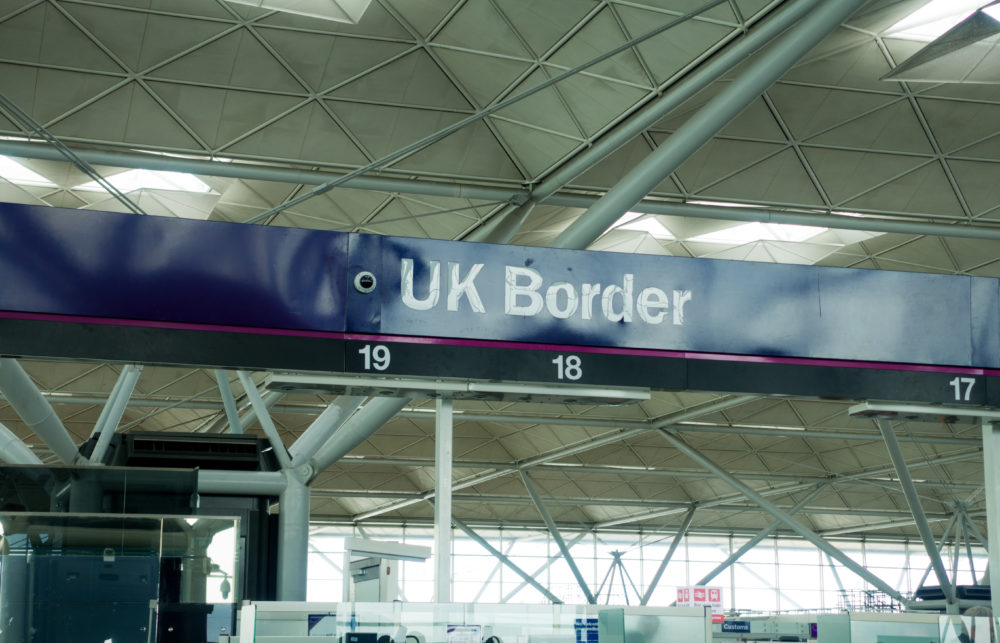Small businesses targeted by immigration enforcement face fines of up to £20,000 per illegal worker. But, as immigration lawyer Anne Morris explains, the Home Office has a track record of failing to follow its own processes correctly, meaning businesses often don’t realise they have grounds to challenge the penalty.
UK employers have a legal duty to carry out document checks on all employees, confirming their right to work in the UK.
If the Home Office alleges an employer has failed to perform these checks properly, they can issue a civil penalty for illegal employment to the business for up to £20,000 per illegal worker – with no cap on the number of fines that can be issued to any one employer.
Civil penalties have become a lucrative income stream for the Home Office. In the last quarter of 2017, over £11.5 million in fines were issued to UK businesses for illegal working.
What government figures don’t show however is how many of these fines are successfully challenged and subsequently cancelled because businesses have been able to show valid grounds for complaint against the Home Office allegations.
Small businesses fighting back
Small and independent businesses are easy pickings for immigration enforcement, and are routinely targeted by the Home Office.
A frequent tactic is to use site inspections (or ‘immigration raids’), typically unannounced, where Home Office representatives attend a business’ premises to inspect personnel records and documentation and to interview staff.
If they find evidence the business is failing to comply with its right to work duties and that employees are being unlawfully employed, they can issue a fine.
Site inspections can be hugely stressful, unpleasant and invasive for employers. After the ordeal of the inspection, and concerned about the gravity of the allegations and the tight timeframes involved, it’s understandable why many business owners just pay the fine.
But the civil penalty could be an unnecessary and avoidable cost because, put simply, the Home Office often gets it wrong.
Common Home Office errors
While each case would turn on its own facts, there are clearly issues with the Home Office failing on a consistent basis to meet its own procedural requirements.
Typical grounds for complaint include:
• Immigration enforcement officials attended the premises without the correct paperwork or permissions to enter and carry out an inspection.
• The Home Office has misapplied or misinterpreted the rules when making their decision to impose a fine.
• The Home Office has insufficient evidence to support their allegations.
• The conduct of officials during the inspection fell below the required standards.
If employers can show the Home Office has erred in these duties, they could have grounds to challenge the fine.
>See also
What to do if your business has been issued a civil penalty
If you have received a civil penalty for illegal working, you will need to move quickly and respond within the stated timeframe.
There are a number of options that could be open to you:
• You pay the fine, ideally negotiating a discount
• You challenge for the fine to be reduced
• You challenge for the fine to be cancelled
It will be a matter of looking at the allegations and the facts of your particular case.
Small businesses can be at risk of non-compliance if they’re not up to speed with their duties, often through a lack of time, resource and understanding of the rules. So if the allegations are correct, it could make most financial sense to make contact with the Home Office and settle the fine.
Before you do this however, you should be confident that you don’t have grounds for complaint on the basis of:
Home Office conduct and decision-making
If you can prove the Home Office has not followed its own processes correctly or has misapplied the rules, you may be able to appeal for the fine to be cancelled.
For example, a warrant to enter premises under the Licensing Act should not be used to detain illegal immigrants, and any unlawful arrests of foreign individuals could result in allegations of racial discrimination.
Taking notes about the conduct of the officials present at any site inspection will be important evidence, particularly in instances of unlawful or discriminatory behaviour.
Non-liability
If you’re not the employer of alleged illegal worker, you will not be liable for a fine.
For example, if the worker is agency staff and employed by a third party, you are not under a duty to verify their right to work.
Excessive penalty
If you can show mitigating circumstances you may be able to negotiate a reduced fine.
For example, where you can demonstrate through your HR records general right to work compliance, and this issue was a result of a one-off oversight.
Statutory excuse
If you can prove you carried out the required document checks of the employee’s documents prior to employing them and took reasonable steps to check the employee’s legality, you could have grounds to challenge for the fine to be cancelled. You would need to have as evidence all relevant documents from the time you employed the individual.
For example, if the basis of the fine is that an employer had presented forged documents, you may be able to challenge the fine on the basis that you took all reasonable steps to meet your compliance duties. You are not required to be an expert in fraud!
Conclusion
With changes to UK immigration rules affecting EU citizens on the horizon, immigration enforcement is going to become a greater concern for employers post-Brexit.
If your business is facing a fine, while the Home Office continues to struggle to follow its own rules, it could pay to check all of your options. Take advice at the preliminary penalty stage to determine quickly how best to proceed and which course of action will result in minimal financial loss for your business.
Anne Morris is managing director of immigration solicitors DavidsonMorris.





